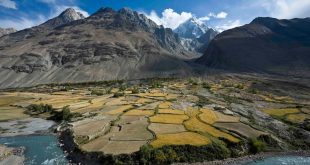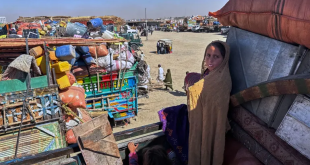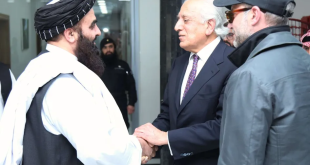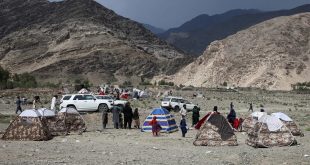Advisor to Pakistan’s Prime Minister Nawaz Sharif on foreign affairs and national security, Sartaj Aziz, said the country needs a seismic shift in its relations with Afghanistan, Iran and India. It’s a welcoming move. Yet it looks impossible until Pakistan’s security establishment changes its mood on Pakistan’s foreign relations and Taliban. Since Pakistan has been considered the godfather of the Taliban and militancy in the region, and if it officially holds its support back, nothing will arrest peace in the region. It’s much propitious for peace in the region that finally Pakistan has realized there is need for a major shift. But, unfortunately Aziz’s words and wishes wouldn’t make a major difference, as he is just an advisor, and his words will have no effects on the military establishment therefore people in the region shouldn’t be much confident about change in Pakistan’s foreign policy. Pakistan’s foreign policy is being devised and written in Pakistan’s GHQ instead of by its government department (foreign office) therefore it will have always a military flavor not letting business ties to overpower political ties. Policymakers in the United States and its intelligence officials are well cognizant of the fact that Islamabad has long been pursuing a duplicitous policy. It has created a thick smokescreen of secrecy and confusion over the tribal belt as no local and international journalists or aid workers are allowed to visit the area. In such a situation building hopes about shift in policy is self-deception. If Pakistan really wants to bring shift in its foreign policy, it will have to reduce the ingredients of perceived threats from its neighboring states in its foreign policy. On domestic front it will have to bring reforms in its schools and colleges curricula, and regulate madrassas education. Equally important, nevertheless, is redirecting media attention to promoting overall reforms in its education system. But contrarily, Jamat-e-Islami (JI) and Pakistan Tehreek-e-Insaf (PTI) have started eliminating materials from books in Khyber Pakhtunkhwa—a province where the two political parties have formed a coalition government. The excluded materials were related to non-violence, the genesis of terrorism in the region, and how Pashtuns became its victims nevertheless the coalition government introduced excerptions that teach violence. Attitude towards militant groups in Pakistan are quite geographically clustered, but where there is militancy, the people of the areas look at militancy and Taliban with disdain. And those who are not directly affected by Taliban have fascination about it and it’s all because of media and text books. Militant groups receive no support or very little support in the areas where they have carried out most attacks. Besides that, support for the Afghan Taliban is almost inversely proportional to their distance from the Afghan border. Ask anybody—educated, semi-literate and illiterate in Punjab about the Afghan Taliban and they will start eulogizing them and ask even a man in the street in Khyber Pakhtunkhwa and FATA, and they will tell you that the very much concept of good and bad Taliban is misleading. For them Taliban are Taliban. And their presence means death and destruction, illiteracy, insecurity and a life of refuge in camps. Pakistani media don’t have the spleen to report fairly as there is a self-censorship due to fear from unseen hands—state actors. Therefore, it doesn’t mean that high level of militant activity in an area is an evidence for the existence of support from militant groups. Some international media outlets such as BBC Pashto, Deewa Radio of VOA, Mashaal Radio of VOA, and others report fairly independently and fearlessly on the tribal belt and terrorism inside Pakistan. To bring shift in its policies towards terrorism and neighboring countries, it wouldn’t be a much hectic job for the government of Pakistan to improve its ties with neighbors but given that the military let the civilian government to be on the driving seat. However people inside Pakistan and abroad think it wouldn’t happen particularly after the formation of military courts, which clearly say much about the credibility or value of judiciary and courts in the eyes of military generals. When these generals cannot trust the government’s judiciary, how they would let the government to be on driving seat in devising foreign policy.
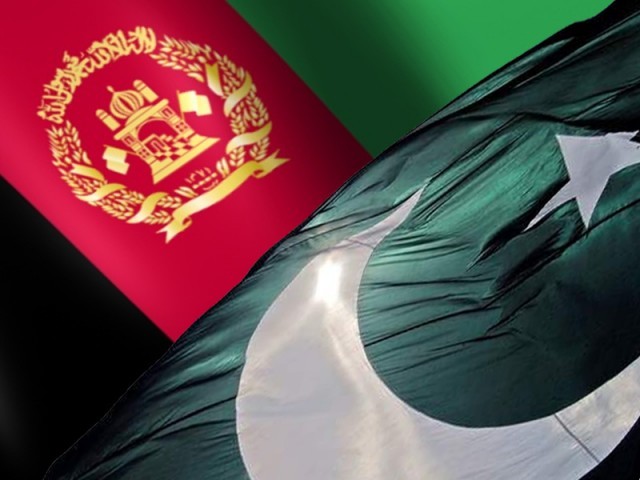
 Afghanistan Times Latest News and Analysis from Afghanistan and the Region
Afghanistan Times Latest News and Analysis from Afghanistan and the Region
